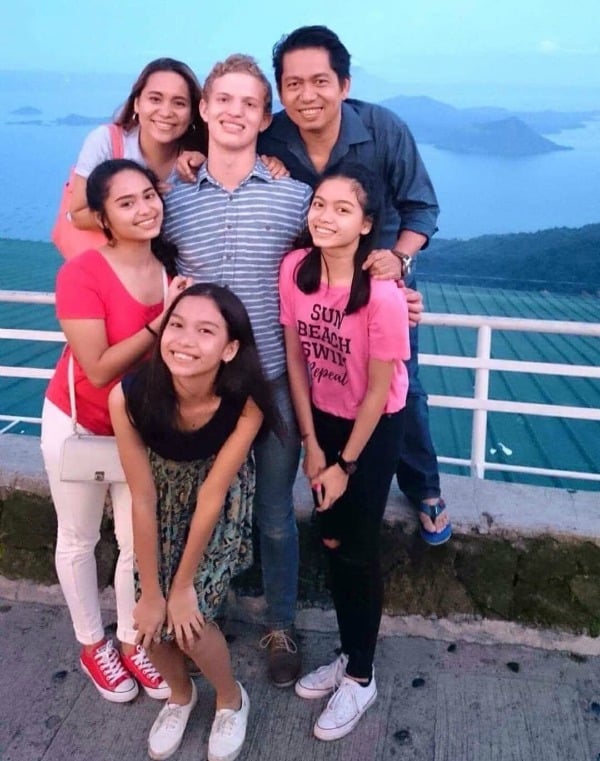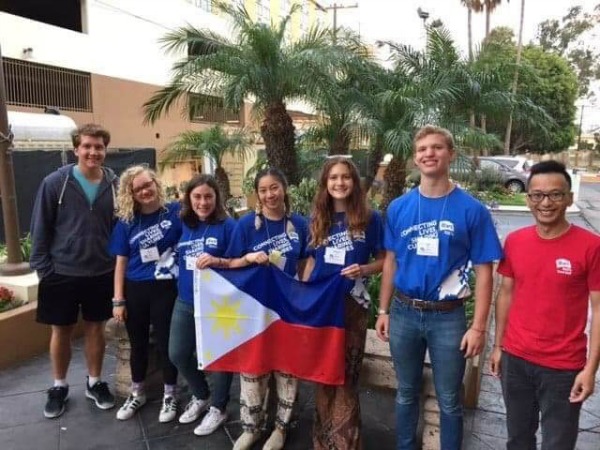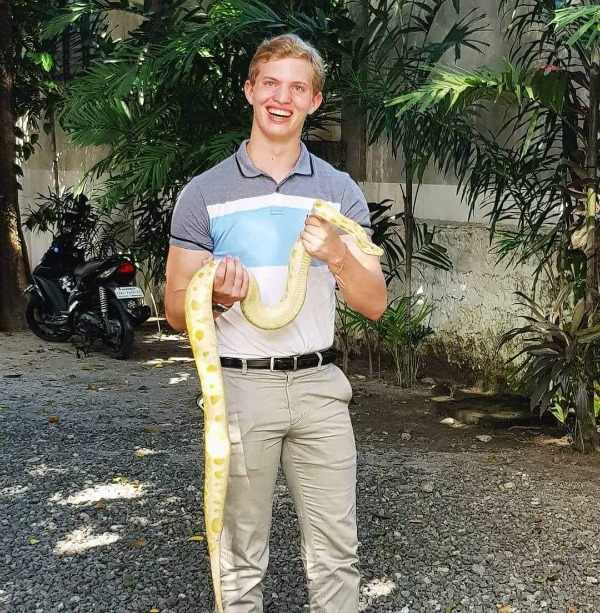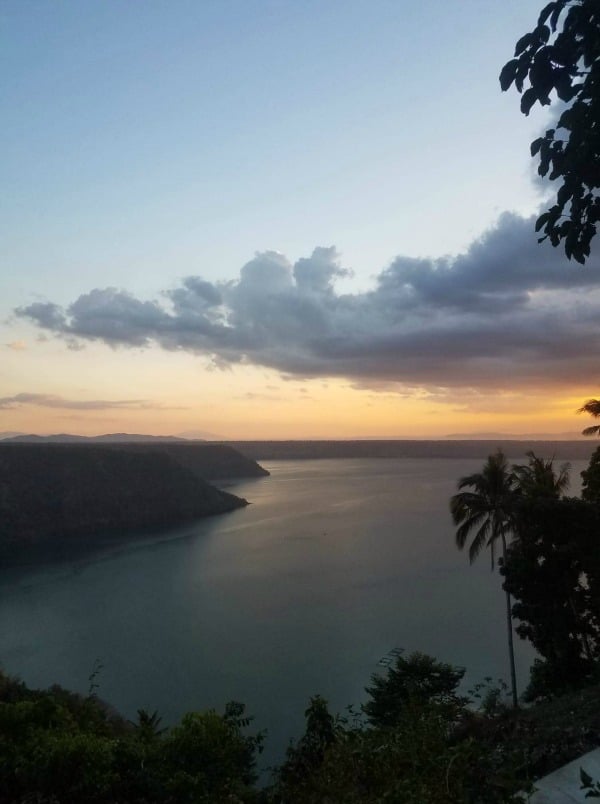
It has been two months since Colin Vega returned from the Philippines, where he spent the entirety of what should have been his senior year at Verona High School. Soon, he’ll be heading to college at Princeton University. It’s been an interesting journey.
During his junior year, Vega contemplated how much he would gain from another year of high school, and began looking for alternatives that would still let him graduate. “Mostly it was a desire to stop being stagnant,” he said. Vega had fulfilled most of the necessary graduation credit requirements by the end of junior year, but took a few online classes over the summer to satisfy all of them before he left. He considered graduating early but wasn’t interested in taking a gap year, so he began looking at study abroad programs. Many of these were very expensive, but he eventually found an exchange program that was free through American Field Service, a non-profit that sends and receives students from different countries, and applied through a series of essays as well as an interview.
Vega was accepted into the program in March of his junior year, after applying the previous December. He was assigned to live in the Philippines, but the program also sent students to Senegal, Morocco, Ghana, India, Indonesia, Thailand, Malaysia, Bosnia, Macedonia, and Jordan.

Upon arriving in the Philippines, Vega spent a week in the capital city of Manila with a group of exchange students from other countries who were partaking in the program. They were introduced to Filipino culture and the prospect of living with a host family during this orientation. On top of that, the students were able to interact with and learn from each other. “The orientation was very important because you got to figure out these other cultures that you weren’t necessarily familiar with,” Vega said.
There were four students along with Vega that resided in the same community on the island of Luzon, from a variety of countries including Belgium and Columbia. They each lived with a host family, and went to the same school in the town. Vega lived with his host parents, three sisters, and their grandfather.
The school experience was much different from what what Vega expected, especially in comparison to what we are used to here. A large part of this was because grades 11 and 12 were only introduced into Filipino schools last year. Previously, the students there would go to school from kindergarten through tenth grade, and then attend college right after that at age 16. These students would typically commute everyday to school, as Filipinos value keeping family close together, which is much different from the teenagers here who are typically anxious to leave home and gain a sense of freedom.
Vega’s daily schedule was also much different as he attended school on Tuesday and Thursday from 9 a.m. to 5 p.m., and then for a half day on Saturday. His classes were three hours long followed by a half-hour break, and the teachers would rotate in and out of the same classroom that held around 50 students. Vega’s class was entirely Filipino. “It was a very local experience,” he said. The classes were officially conducted in English, but he was able to learn a bit of Tagalog, the commonly spoken Filipino language, from his classmates. “A lot of students as well as some teachers are understandably nervous or reluctant to use English, so much of the person-to-person conversation was in Tagalog,” Vega said.
It took Vega some time to acclimate to this, in addition to the constant 80-degree weather and other cultural differences, such as taking bucket showers and eating rice for every meal.
“The prices were also shocking to me,” Vega recalled, describing how a full meal typically costs $1, while transportation is merely 20 cents. “I took a three-hour Uber once for $30.”
The transportation in the Philippines is very different as well, with “tricycles”, or motorcycles with sidecars attached, and “jeepneys”, or old military jeeps being the most common. It is typically unusual to have a car, but Vega’s host family had one.
Vega used these methods to travel around where he lived, such as to the beaches or mountains which are the main attractions of the area. He didn’t have the opportunity to return home to Verona during his year abroad, but thanks to the 25 travel days that the program granted, he was able to travel throughout other islands in the Philippines as well as to Singapore, where he visited with his host family.

While he wasn’t at school or traveling, he was working on his college applications. Vega was smart to get a head start on them before leaving for the Philippines, but he enjoyed having the free time to finish writing his essays.
Vega heard from Princeton nearly last, but was also accepted into Swarthmore College, Pomona College, The College of William and Mary, Bates College, and was wait-listed at Vanderbilt and Harvard universities. He was denied admission from Stanford and Columbia universities.
“I couldn’t be happier about Princeton”, Vega said, noting how everyone he talked to who currently attends loves it there. “I think it’s going to be an incredible experience.”
Vega is currently undecided as to what he will major in, but expressed an interest in Princeton’s policy program, as well as in history and linguistics. Although he is unsure as of now, he feels comforted by the fact that most students go in undecided. “I’m at least in good company with not knowing where I want to go, and I know Princeton is very supportive about that”, he said. “A lot of these schools just want to see that you care and that you have a passion for whatever it is you want to learn, and once you get there they’ll hone that and get you to where you belong.”
Vega acknowledged that the college application process can be difficult, but recommends beginning by doing things that interest you, because those are the things that will ultimately show through.
“You don’t have to save the world, or cure cancer, or be a superhero; just be yourself and be interesting, and be interested. Have a desire to learn, and you’ll go far.”
“What’s Next” is a series of profiles about what members of each Verona High School class intend to do after graduation. MyVeronaNJ has been publishing the series since 2010 and you can read all of them here.


